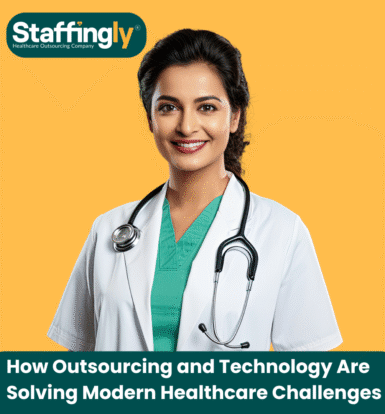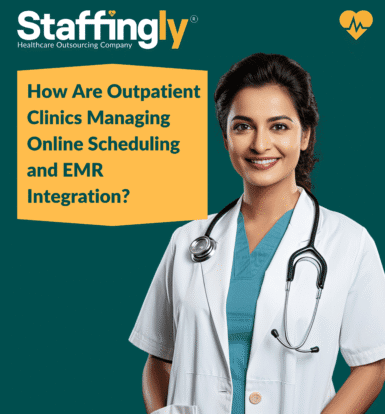On-Demand Outsourcing BPO Services for Healthcare Providers With 24/7 Coverage!
Save up to 70% on staffing costs!
Browse Specialty Staffing Services
Why Do Medication Prior Authorizations Cause Delays and Burnout in Clinics?
“It was supposed to be an easy position that needed help, but it has become extremely frustrating and defeating,” said a medication authorization specialist describing her daily struggle managing prior authorizations. In many clinics, prior authorization (PA) work has become one of the most stressful and time-consuming administrative responsibilities. Providers prescribe high-cost medications that often require extensive documentation and justification, and when something is missing, it all falls back on the PA team. “We handle all prior authorizations for nine

How Can Doctors Reduce Delays and Stress from Prior Authorizations?
“Running a clinic already feels like juggling chainsaws some days,” one doctor shared when describing the constant struggle of prior authorizations. Between waiting on hold with payers, re-faxing forms, and chasing unexplained denials, the process has become an exhausting distraction from patient care. Many clinicians echo the same frustration: “A child’s MRI, a patient’s infusion, or even a basic medication was delayed because of this broken system.” Each delay not only hurts the patient but drains clinical productivity and staff

How Outsourcing and Technology Are Solving Modern Healthcare Challenges?
Healthcare professional forums are buzzing with a critical question: what healthcare problems can actually be solved by outsourcing or technology? One practitioner captured the core frustration: “there’s a long-standing problem with setting appointments with GPs and psychologists, and complaints that medical receptionists are rude almost anywhere.” The discussion reveals something more fundamental than isolated scheduling issues. Healthcare professionals are identifying systemic problems where technology and virtual support could recover “vast amount of clinical time and patient time that can be

The Benefits of Having a Virtual Medical Assistant with Your Practice
Healthcare professionals on Reddit are having real conversations about virtual medical assistants, and the experiences they’re sharing reveal both the potential and the practical realities of integrating remote support into medical practices. One discussion caught attention in the medical scribe community when a podcast episode about virtual medical assistants was shared. The topic sparked interest among healthcare professionals already familiar with remote healthcare support roles, raising questions about how virtual assistants compare to traditional in-office staff and what benefits they

How Can Clinics Overcome Claim Denials and Billing Challenges?
Claim denials are becoming an exhausting problem for small clinics and hospitals. One administrator shared, “Not sure if this is a post or a cry for help. We’re seeing an uptick in denied claims lately, mostly dumb things like coding mismatches, outdated credentialing info, or missing tax IDs. We have a small admin team and it’s getting overwhelming to track and resubmit everything.” This comment sparked a larger discussion among healthcare professionals who explained why denials are increasing, how technology

Why Are Clinics Still Manually Handling Insurance Verification?
Healthcare professionals across the East Coast are asking a blunt question: “Why are we still doing insurance verify, pre-auths like it’s 1999??” One clinic administrator who called over 500 PT clinics discovered that around 50% still have staff manually calling insurances for verifications and pre-authorizations, spending 10 to 30 minutes per call. The discussion reveals a deeper tension between automation promises and operational reality. While 37 clinics agreed to pilot AI voice assistants for insurance verification, the majority shut down

How Outsourced Billing Improves Revenue Cycle Management?
Therapists expanding their practices face a familiar crossroads. One practitioner captured the struggle perfectly: “I’m considering expanding my practice and hiring clinicians, but I know I’m already feeling overwhelmed with insurance and will need to outsource this somehow.” The question that follows reveals the real challenge: “Do any of you do this and who do you use? It seems like there are a few larger companies that do this and they charge a lot per claim, and with individuals my

How Are Outpatient Clinics Managing Online Scheduling and EMR Integration?
A frustrated patient summed it up best: “I had to call the clinic, sit on hold, give my insurance info verbally, and still had no idea what I was going to owe until I checked in.” That single quote represents what many outpatient clinics are still battling — outdated scheduling workflows, disconnected EMRs, and zero upfront insurance checks. In a recent healthcare forum, professionals across physical therapy, behavioral health, and outpatient practices shared what’s actually happening behind the scenes —
 Book a Demo to Build Your Team Today!
Book a Demo to Build Your Team Today!


 Read Case Studies
Read Case Studies 



 Virtual Medical Assistants
Virtual Medical Assistants



